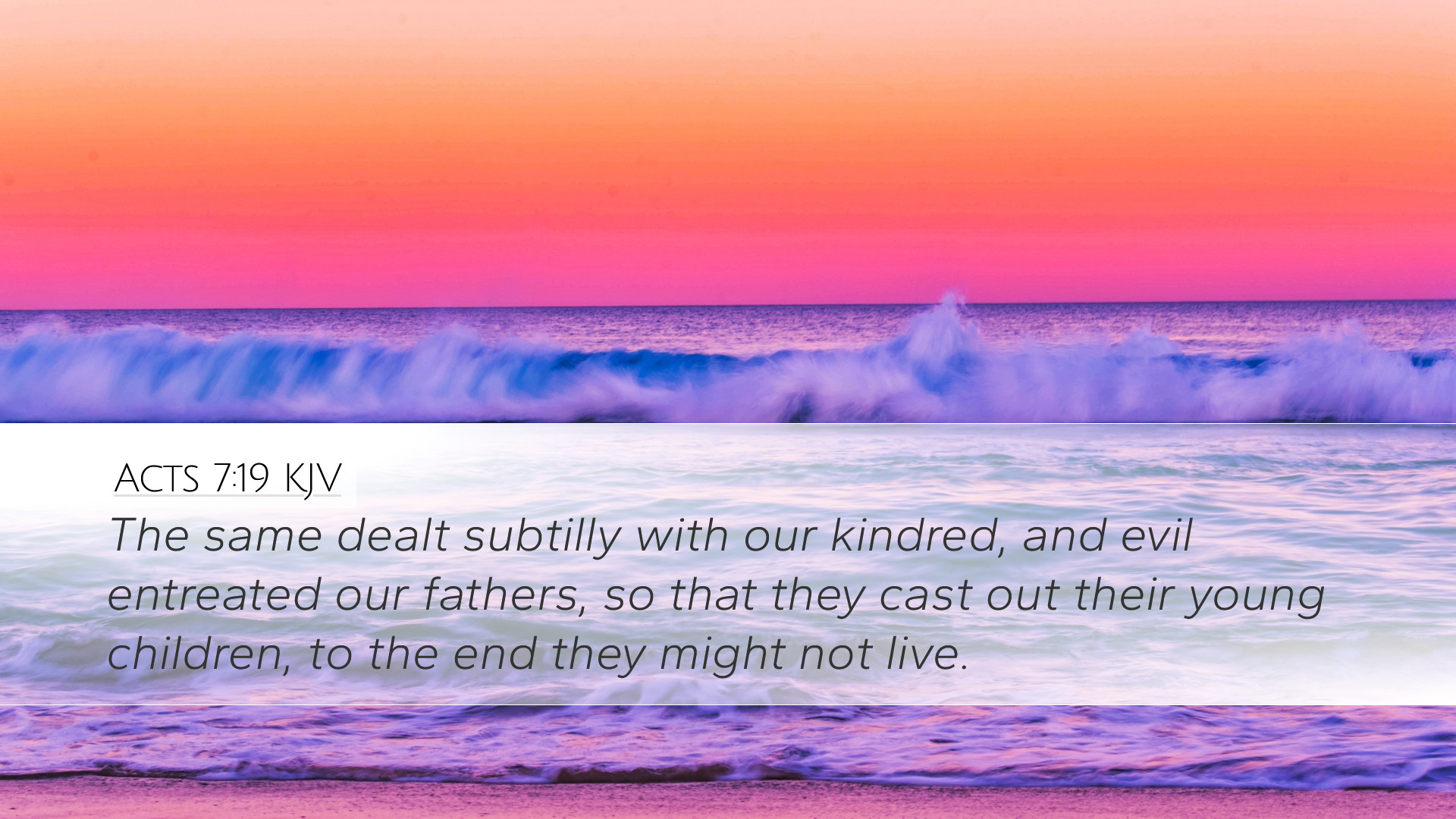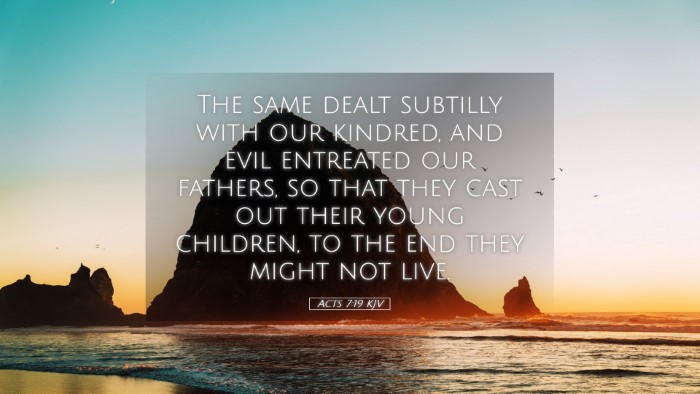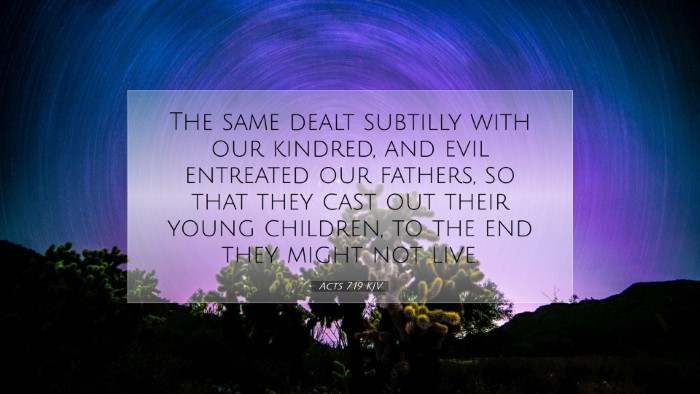Commentary on Acts 7:19
Bible Verse: Acts 7:19 - "He dealt subtilly with our kin, and evilly entreated our fathers, so that they cast out their young children, to the end they might not live."
Introduction
This verse occurs within Stephen’s speech before the Sanhedrin, where he recounts the history of Israel. The context is critical as it sets the tone for the opposition that the people of God often faced. In this instance, Stephen highlights the oppression faced by the Israelites in Egypt, focusing particularly on the malevolent actions of Pharaoh. Several insights can be gleaned from esteemed public domain commentaries that expound upon this passage.
Historical Context
According to Matthew Henry, understanding the oppressive environment of Egypt during Joseph's death is essential. The Israelites, initially favored due to Joseph, soon became the target of Pharaoh’s fear and suspicion. Pharaoh’s actions display a classic pattern of oppression fueled by insecurity regarding the growth and potential of God’s people.
- Fear of the Hebrew population: Pharaoh's decision to ensnare the Israelites culminated from a fear that they would grow too powerful and rebel.
- Subtle oppression: Henry notes that Pharaoh "dealt subtly," indicating a strategic rather than overtly violent oppression, highlighting the cunning nature of tyrants in dealing with those they perceive as threats.
Spiritual Implications
Albert Barnes remarks on the moral implications of Pharaoh's reign. The edict to cast out the male children can be seen as an affront not only to humanity but directly against God’s promise to Israel. This wicked intention serves to exemplify the idea that oppression often targets the most vulnerable, an observation relevant to spiritual leaders today regarding societal injustices.
- Attacks on the vulnerable: This act of Pharaoh signifies broader assaults on the innocent—echoing through history to contemporary issues where the voiceless are oppressed.
- God's protection: Barnes points to the assurance that despite tyranny, God remains sovereign, suggesting that such oppressive actions are ultimately futile against divine purposes.
Theological Significance
Adam Clarke delves into the theological implications of this verse, asserting that the cruelty exhibited by Pharaoh parallels the spiritual battles that believers face throughout history. Clarke emphasizes the divine foresight of oppression faced by early Christians and how it mirrors the experiences of the Israelites.
- Sign of spiritual warfare: Clarke elucidates that the attack on children is emblematic of the enemy’s strategy to destroy future generations of faith.
- The resilience of God's people: This passage invites reflection on the perseverance of God's chosen people amidst trials, a theme prevalent throughout scripture.
Application for Today
The depiction of Pharaoh’s malice in Acts 7:19 serves as a somber reminder for educators, pastors, and theologians on the critical need to advocate for the defenseless in society. The biblical narrative does not merely reflect a historical account; it calls the church to action. With the insight from the above commentaries, we can draw several applications:
- Advocacy for the marginalized: Like the Israelites, contemporary society also faces systemic injustices. Christian leaders are urged to stand firm against the evils that seek to harm the weak.
- Faith in divine deliverance: This verse reassures believers that even in suffering, God’s purposes will prevail. The church should remain hopeful, trusting in divine intervention as was evidenced in the continuation of Israel despite Pharaoh’s abuse.
- Awareness of spiritual battles: Clarke’s reflections compel modern believers to recognize the ongoing spiritual warfare impacting faith communities and to equip themselves with the armor of God.
Conclusion
Acts 7:19 encapsulates a pivotal moment in biblical history that reverberates through time, offering rich commentary on the nature of oppression, the design of God’s plan, and the enduring hope for His people. Through the combined insights of Henry, Barnes, and Clarke, we are exhorted to remember our role in advocating justice, nurturing faith, and recognizing the significance of God’s unwavering promise to His people.


